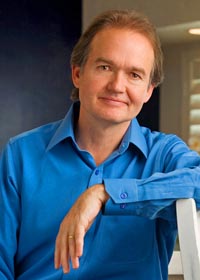4. What to do about anti-social behaviour
Previous - Next - Contents
 I must admit that, just like my mother, I hate visitors, dinner parties and other such
social gatherings. When guests arrived at our family home Martinshof my mother would always feign to
have a headache and retire upstairs to the bedroom where she would happily spend
all afternoon reading a book.
I must admit that, just like my mother, I hate visitors, dinner parties and other such
social gatherings. When guests arrived at our family home Martinshof my mother would always feign to
have a headache and retire upstairs to the bedroom where she would happily spend
all afternoon reading a book.
I too try to avoid such situations but occasionally find myself in one largely
for politeness sake (although my behaviour at such occasions tend to belie
that sentiment). I find the conversations invariably inconsequential, trivial and very very
boring.
It is reassuring however that my mother and I (and I suspect many other
intelligent introverts) are not alone in these anti-social feelings.
Take for example Arthur Schopenhauer (1788-1860), who
much preferred the company of his poodle (he had a succession of them
throughout his life, and always addressed them as "Sir") instead of people :
-
"A man of genius can hardly be sociable, for what dialogue could indeed be so intelligent and entertaining as his own
monologues?"
Although I certainly do not claim to be a genius, I share
exactly Schopenhauer's sentiments and find the meaningless social prattle merely
annoying "static" disturbing the flow of my own thoughts and a waste of my time.
Or take Friedrich Nietzsche (1844-1900) who stated - "Really, there is nobody living about whom I care much. The
people I like have been dead for a long, long time . . ."
With a few exceptions, I too feel a much greater affinity to some people
long dead (Pythagoras, J S Bach, Erik Satie, Charles Darwin, Albert Einstein,
some philosophers, writers, artists : who's achievements have enriched my life
or helped me to comprehend my identity in the context of the universe), than most
people living today.
I personally also interpret Nietzsche's (above) statement in a more positive
and constructive way : - The true worth (to humanity) of
an individual becomes often only apparent after his/her death.
Will my life
have some worth for future generations? I don't know, but the chance is of course
very small at best. Perhaps my ideas on music (much of it displayed on my
Website) will survive the passage of time. That would certainly be nice.
 Not surprisingly both Schopenhauer and Nietzsche were pessimists and considered
life a sustained period of suffering (Schopenhauer : "It
is bad today and every day it will get worse, until the worst of all
happens".)
Not surprisingly both Schopenhauer and Nietzsche were pessimists and considered
life a sustained period of suffering (Schopenhauer : "It
is bad today and every day it will get worse, until the worst of all
happens".)
This is of course were I am in strong disagreement with both of them. I see life
as a unique and wonderful opportunity to experience the world and universe around
us. The two pessimists should have listened to Epicurus (341-270 BC) and make
some good (living, human) friends in order to become happy.
To reconcile Schopenhauer and Nietzsche's (as well as my) attitude towards
socialising with Epicurus's pursuit of happiness through having friends it is
necessary to reassess the purpose of a social conversation.
 It is
here that I take my advice from John Gray ("Men are from Mars, Women
are from Venus").
It is
here that I take my advice from John Gray ("Men are from Mars, Women
are from Venus"). - Contrary to men, for women it is
not
important what is being said or discussed,
but that a conversation
is taking place. It is an important form of
bonding.
(an emotional human interaction)
Although not a woman, I too see most conversations from this perspective. However I
prefer (and in fact very much enjoy) to have these exchanges on a one to one
basis and avoid larger social groups whenever possible.
(Quotes of Schopenhauer and Nietzsche taken from The Consolations of Philosophy by Alain de Botton)
Next Page -
Top of Page
Copyright © 2010 Michael Furstner
|


